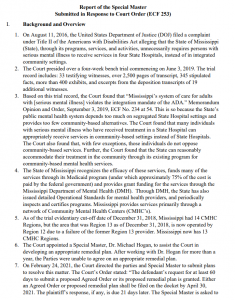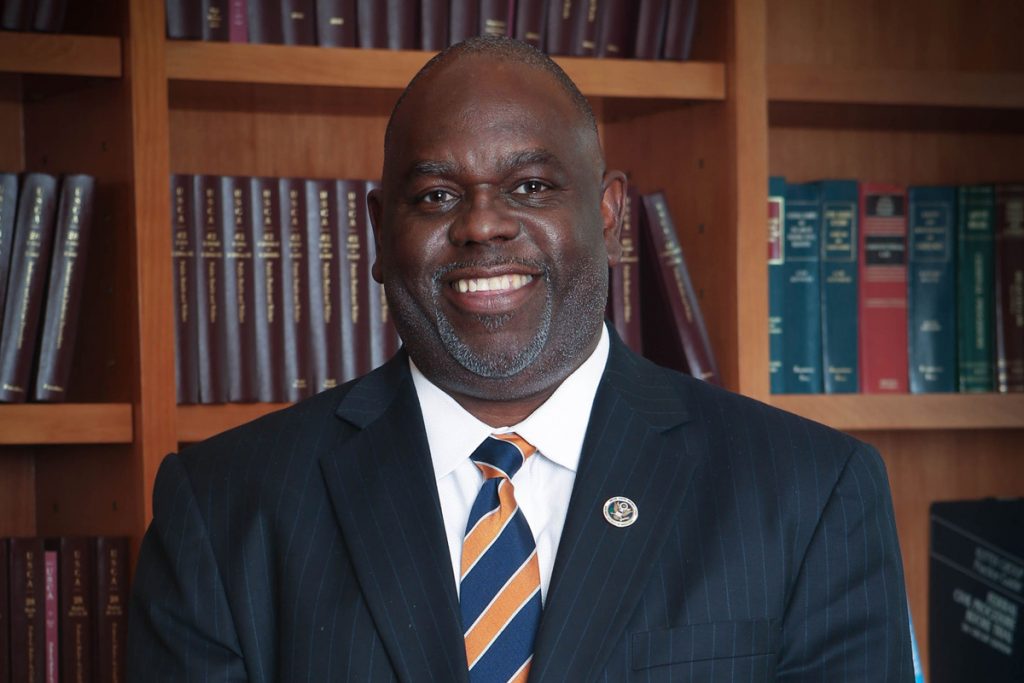Dr. Michael Hogan, the court-appointed special master advising Judge Carlton Reeves on Mississippi’s ailing mental-health system, has recommended the court adopt many of the State’s proposed remediations for fixing the system over those suggested by the U.S. Department of Justice. The 23-page report, which will influence Reeves’ upcoming ruling on the proposed plans, is an acknowledgment of Mississippi’s progress in providing the necessary community services that triggered the original lawsuit.
“The Special Master finds that there are some strengths in Mississippi’s mental health system, and it also appears that progress in better serving adults with serious mental illness and meeting the mandates of the ADA has been made in recent years and since the Trial,” the report states.
It acknowledges that Mississippi’s development of new services could sufficiently fulfill the requirements of the court’s ruling. “In fact,” the report adds, “except for Supported Housing, where the trial record demonstrates that the State’s proposal is insufficient, the Special Master’s recommendations are largely what the State has proposed.”

But Hogan’s report sides firmly with the Department of Justice’s plan in one key element: oversight. The State’s plan for bringing its mental-health system into compliance with the Olmstead ruling—which affirms the right of individuals to remain in their communities and out of state custody wherever possible—assumes that Mississippi will be able to self-report the accomplishment of court-ordered metrics.
The special master’s report disagrees. “The Special Master concludes that the trial record establishes the need for Court review of progress, and that the State’s internal monitoring—although it should provide the great majority of data needed to assess progress—requires independent validation … the Special Master will recommend appointment of a Monitor to serve as the eyes and ears of the Court and to facilitate finding the State in compliance with the (Americans With Disabilities Act),” it states.
This need for validation is reflected in many of the report’s findings. For example, one of the demands of the court’s initial decision was for Mississippi to establish “programs of assertive community treatment” teams, called PACTs. These teams are mobile, clinical providers capable of replicating many of the services provided by mental hospitals to individuals remaining in their communities.
The State suggested a mixture of services to approximate the effect of PACT teams for every region in Mississippi. “The Special Master will suggest accepting the State’s proposed mix of PACT, ICORT and ICSS services,” the report concludes, but adds that “data review to validate that the proposed services are in place, serving people as intended and working as intended will be proposed to provide the State the opportunity to demonstrate compliance.”
The special master’s order is, additionally, more in line with the Department of Justice’s proposal on the subject of housing support. Proper housing support offers community living options instead of hospital-style institutions, which segregate individuals away from the public. “The State Report indicates that additional funding for the program is being added. … However, the DOJ’s Remedial Plan proposes a much more substantial expansion,” Hogan’s report explains.
The report advises the court to demand a more significant expansion in supported housing: “Other states have used various mechanisms to supplement Permanent Supported Housing services to assist people with serious mental illness to secure stable housing, such as assistance with down payments and partial subsidies. Mississippi does not appear to offer these options and has not proposed alternative ways to address the problem (for example, setting aside Section 8 vouchers for people with serious mental illness) … Given this context, the Special Master’s recommended Remedial Plan will suggest an expansion of Supported Housing.”
Hogan’s advice is the final step before Reeves’ ruling on which plan will define the state’s mental-health system for the years to come, expected sometime in the coming weeks. Regardless of whether the State’s plan or the Department of Justice’s plan is accepted, the possibility remains that Attorney General Lynn Fitch will appeal the ruling, potentially derailing the necessary changes to the state’s mental-health system for years to come.










